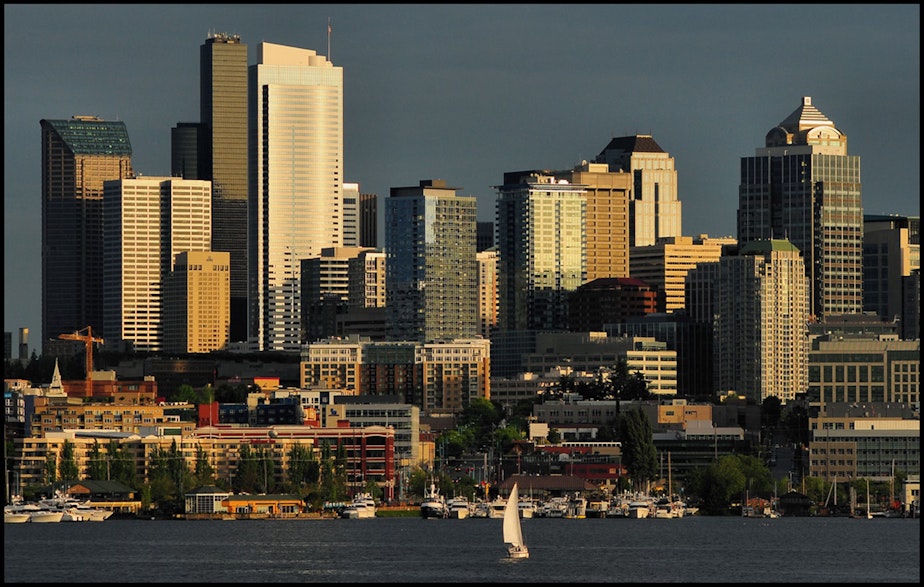Seattle eyes capital gains tax

Seattle officials tell KUOW they’re considering a local tax on capital gains.
This follows last month’s state Supreme Court ruling that a state tax on capital gains is constitutional.
According to City Councilmember Teresa Mosqueda, it’s just one possibility for new sources of revenue in the coming years to fill a giant “revenue gap.”
“I think that the court ruling reaffirms what many of us already knew, which is that capital gains should be considered a viable option at the state or local levels,” Mosqueda said.
Mosqueda co-chairs a “Revenue Stabilization Work Group” that's tasked with making tax recommendations on how to fill a “revenue gap” forecast to be more than $200 million a year starting in 2025. According to Mosqueda, a capital gains tax is just one of the ideas that will be on the table for the work group, which is made up of local leaders and policy experts.
A Seattle capital gains tax would be “part of the array of tax options that are going to be evaluated and analyzed,” Mosqueda said.
She added that the current tax code is “regressive,” meaning it disproportionately impacts low-income residents.
Currently, the state capital gains tax affects mostly the wealthiest residents. It applies only to the sale of stocks or other assets of amounts greater than $250,000.
Sponsored
In a written statement, Mayor Bruce Harrell's office echoed Mosqueda's concerns about the current regressive tax system, and also said the city is looking into the possibility of a local capital gains tax.
“The Supreme Court upheld the capital gains tax as a valid excise tax. As we do with any potential revenue option, the City will further evaluate the efficacy and consequences of implementing a similar local excise tax,” the statement said.
In its ruling, the state’s highest court ruled that the state tax on capital gains is an “excise” tax, similar to other taxes on the sale of assets like real estate, and not an income tax. That distinction is important because income taxes are not allowed under the state's constitution.
Former Attorney General Rob McKenna, who argued against the state capital gains tax in court, told KUOW he continues to believe the ruling was wrong. But he also said he believes that any new local capital gains taxes in Washington would likely survive court challenges based on this recent ruling.
“It does open the doors to local excise taxes because cities have excise tax authority,” McKenna said.
Sponsored
Professor Scott Schumacher, who directs a graduate program in taxation at the University of Washington, said he agreed with McKenna.
“I know of nothing that would prevent the city of Seattle or any other city from enacting a capital gains tax and having that be constitutional,” Schumacher said.
Seattle's Revenue Stabilization Work Group is expected to make its tax recommendations later this year.




